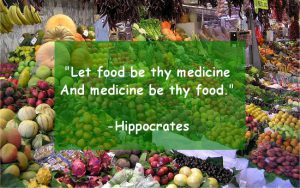Lipedema and Nutrition
Nutrition is the study of food and how it affects the health and growth of the body. Understanding how the nutrients in our food affect our growth, reproduction and survival is essential not only in maintaining good health but managing chronic conditions. In this section we will learn about the key nutrients found in our foods and how we can use food to manage chronic conditions. This specifically applies to Lipedema and nutrition impacts.
Nutrients can be grouped into six major groupings:
- Proteins – the chemical building blocks known as amino acids which are necessary for growth and development of cells, particularly muscles, bones, enzymes and hormones.
- Carbohydrates – nutrients that are broken down into glucose and used for energy in your cells
- Lipids/Fats – fats are used as energy and can be stored as energy for future use, organ protection, vitamin absorption and creating satiation
- Vitamins – essential for overall body functions, building and maintaining immunity and regulating hormones
- Minerals – building materials for bones, nerves, muscles, and controlling body fluid levels
- Water – essential for maintaining body temperature, moving waste through the system via urination, bowel movements and sweating, and protection of joints.
 How we regularly consume these nutrients is commonly referred to as our “diet” or “way of eating”. Some choose to follow a pre-prescribed diet, such as a ketogenic, paleo, Mediterranean, vegetarian or pro-metabolic. For some, especially those with medical or chronic conditions, may not be able to follow a planned diet as prescribed due to food allergies or sensitivities, food dislikes, or even eating disorders.
How we regularly consume these nutrients is commonly referred to as our “diet” or “way of eating”. Some choose to follow a pre-prescribed diet, such as a ketogenic, paleo, Mediterranean, vegetarian or pro-metabolic. For some, especially those with medical or chronic conditions, may not be able to follow a planned diet as prescribed due to food allergies or sensitivities, food dislikes, or even eating disorders.
Some may need to “bio-hack” a preferred diet to maximize the benefits to their bodies and to accommodate a medical condition(s). The “bio-hack” may include eliminating certain foods, swapping out foods for more beneficial ones or adding vitamin or mineral supplements when needed to balance the needs of your system.
Some may need to follow special diets designed around certain medical conditions. Others may find a way to blend two beneficial diets, such as a ketogenic and autoimmune diet, to achieve their desired results. Examples of special diets include:
- Autoimmune Protocol (AIP) diet – designed to reduce inflammation and pain caused by autoimmune disorders
- Low Histamine diet – reduction of symptoms caused by histamine intolerance, especially for those with mast cell activation syndrome (MCAS) or any of the mast cell diseases (MCD)
- Low Oxalate diet – primarily followed by those needing to prevent the formation of kidney stones
- Low Sodium diet – primarily prescribed for those with high blood pressure or cardiac issues
Nutrition Support
I am not a nutrition specialist, only someone who has worked on modifying my diet to help manage my severe Lipo-lymphedema. Many people become nervous at the thought of changing their eating habits and do not feel comfortable making these decisions alone. Others may have experience with eating disorders while others agonize over changing eat habits yet again, especially after years of yo-yo diet plans.
I would recommend consulting a Certified Nutrition Specialist (CNS) to support your nutritional needs, perhaps one that even has experience or knowledge with Lipedema. Remember that food needs to nourish your entire body so it is important to include all the right nutrients in proper quantities to address ALL your current and chronic conditions. A CNS will assess your current health, design an eating plan for your needs, monitor the effects of the plan and make adjusts as necessary to eliminate or ease the conditions currently afflicting your body.
For the purposes of the nutrition section I will be focusing on a diet or way of eating that caters to those with Lipedema or Lipo-lymphedema (primary Lipedema with secondary Lymphedema).
Lipedema and Nutrition
People with Lipedema do not have restricted dietary needs. However, some may have restricted diets due to co-occurring conditions. For example, I have Celiac disease so I need to eat a gluten free diet to manage the chronic Celiac condition even though it does have beneficial aspects for my Lipo-lymphedema.
Near constant inflammation and pain are common symptoms for those with Lipedema or Lipo-Lymphedema. The inflammation and pain levels vary from person to person and may only be present from the waist down, only the legs or may include the arms, particularly the upper arms or may even be body-wide. There are many other disease symptoms to mitigate but the inflammation and pain can be quite debilitating and even cause immobility!
 Through experimentation and case studies it was found that eating a low carbohydrate diet provided significant relief to the inflammation and pain levels experienced by many women! [1][2][3][4] This has led to the recommendation of a ketogenic diet as the best way of eating for those with Lipedema. Women have even reported the loss of non-Lipedema fat as a benefit to the diet too. These benefits have greatly increased the quality of life for those suffering with Lipedema.
Through experimentation and case studies it was found that eating a low carbohydrate diet provided significant relief to the inflammation and pain levels experienced by many women! [1][2][3][4] This has led to the recommendation of a ketogenic diet as the best way of eating for those with Lipedema. Women have even reported the loss of non-Lipedema fat as a benefit to the diet too. These benefits have greatly increased the quality of life for those suffering with Lipedema.
Of course, no one diet fits everyone’s needs. Some people have adapted Paleo or Mediterranean diets with low carbohydrate options to achieve similar results. Everyone will need to evaluate their nutritional needs and bio-hack their plan so that it works best for them.
In addition to choosing a way of eating that benefits your Lipedema condition it may also include supplementation of vitamins and minerals. Any vitamin and mineral deficiencies should be discussed and tested with your doctor. Taking vitamins or minerals without medical consultation can be dangerous and even toxic to your system. There are studies that annotate those with Lipedema are frequently deficient in one or more vitamin or minerals, particularly vitamin D.
We will also explore non-ketogenic eating plans that may provide favorable outcomes for those wanting to manage inflammation, pain and even some weight loss. We will also examine the effects of glucose (sugar) versus fat (ketones) as fuel for our cellular needs.
Click below for information on Lipedema and Nutrition options to help those struggling with this disease find potential solutions. Hopefully you will gain a greater understanding of how and what you choose to eat affects your overall health.
- Lipedema, Inflammation and Keto Way of Eating
- 13 Reasons Keto Might Not Be Working For You
- Intermittent Fasting and Autophagy
- Nutritional Supplements
To Your Improved Health!
References:
[1] National Library of Medicine National Center for Biotechnology Information – Ketogenic Diet: A Nutritional Therapeutic Tool for Lipedema?
[2] National Library of Medicine National Center for Biotechnology Information – Effect of a ketogenic diet on pain and quality of life in patients with lipedema: The LIPODIET pilot study
[3] Lymphatic Education & Research Network – The Ketogenic Solution for Lymphatic Disorders
[4] Lipedema Simplified – New Study Suggests That Ketogenic (Keto) Diet Can Help Manage Inflammation and Pain Associated with Lipedema